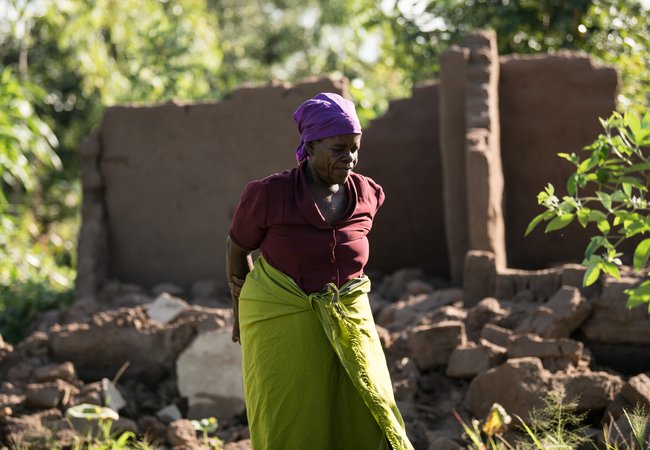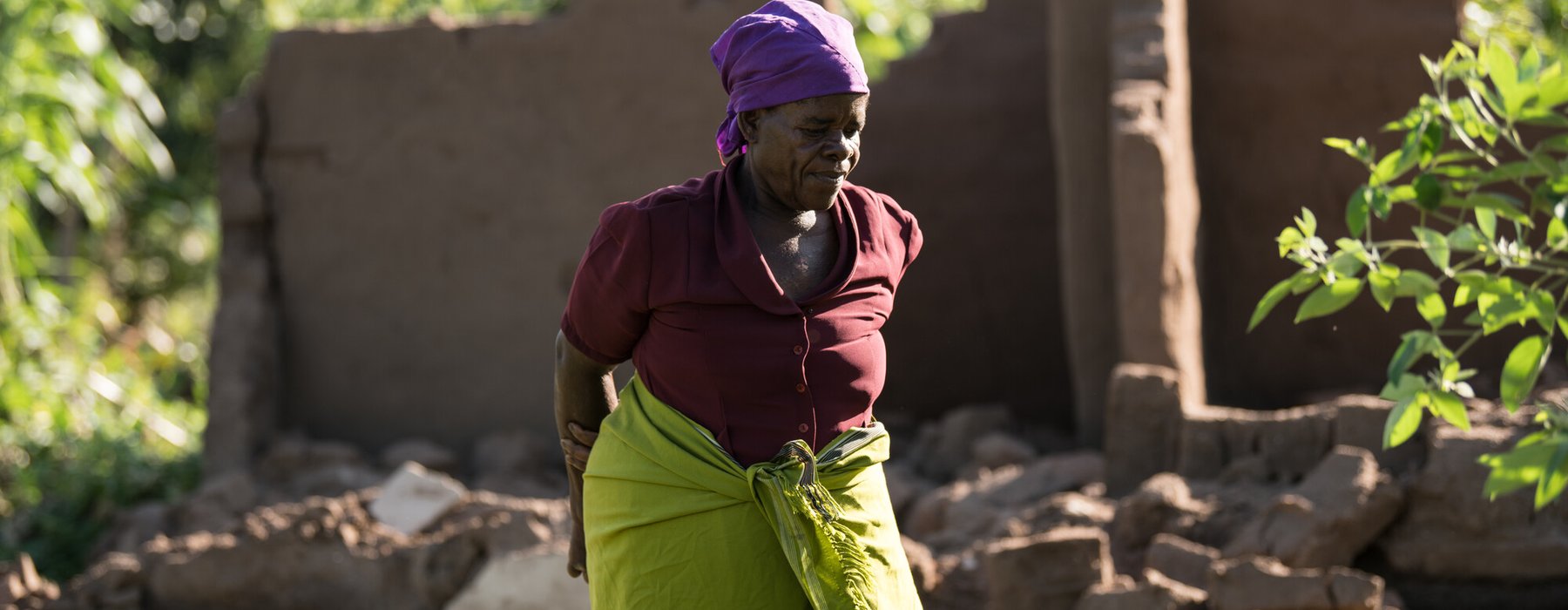The rain was the result of Cyclone Freddy, the world’s longest lasting cyclone, which battered southern Africa in March. In Malawi, it killed at least 679 people, affecting 2.2 million people in total; severely damaging homes, crops, roads, schools and hospitals.
The cyclone came amid the country’s deadliest cholera outbreak to date, striking a devastating double blow. “It was a crisis on top of a crisis,” my Oxfam colleague Lingalireni Mihowa told me, “It will take a lot of years, a lot of money, a lot of collaboration and a lot of sacrifice, work and support for Malawi for us to recover.”
While Ligineti watched everything she had being washed away, hundreds of miles north in Kenya, mother of five Seinab Abdi Maalim instead longs for rain. “We are at the verge of death because of drought,” she says. “Drought has swept away our cattle. We have no food. What little water there is, is dirty.”
Climate-induced drought, compounded by ongoing conflict and high food prices, has left millions of people like Seinab across East Africa on the brink of famine.
Scientists tell us that without climate change, this devastating drought simply wouldn’t have happened. And it’s also because of climate change that incidents of extreme weather, including cyclones, are getting worse.
Against this deadly backdrop, yesterday the Scottish Government announced that it had once again failed to meet its own legally binding emissions reduction target: the fourth missed target in five years. This pattern of failure seriously jeopardises the Scottish Government’s pledge to cut emissions by 75% by 2030, enroute to net zero.
It also undermines Scotland’s global leadership in being the first country in the world to give dedicated aid money to help countries deal with the losses and damage they face due to climate change. What good is it to merrily hand out fire extinguishers to help combat the flames of climate change if you continue to pour petrol on the fire?
Speaking of which, there’s growing concern that the Scottish Government’s upcoming Energy Strategy will fall short of unequivocal opposition to the UK Government issuing any new oil and gas licences.
The UN has made it plain: we must end our global addiction to fossil fuels.
Last month, the First Minister warned against throwing oil and gas workers “on the scrapheap” – something no-one is arguing for. The transition must be just for all, but that must include those suffering today in Malawi, Kenya and beyond.
Humza Yousaf must oppose more climate wrecking fossil fuels while stepping up, speeding up, and scaling up action to drive down Scotland’s emissions, funded by making polluters pay for their damage.
All of our futures are on the line: Ligineti, Seinab, and the rest of us simply can’t afford any more reckless missteps in this deadly dance with climate destruction.
This article originally appeared in The Herald.


